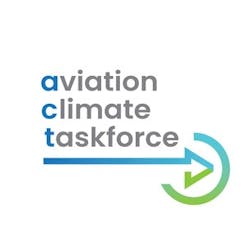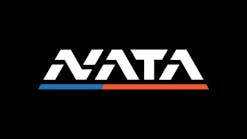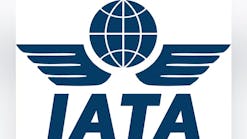Aviation Climate Task Force Issues First Research Grant To Drive More Sustainable Aviation Fuel Using Direct Air Capture Technology
The Aviation Climate Taskforce has announced the funding of its first research grant to pioneer an innovative Direct Air Capture (DAC)-to-Jet approach — transforming conventional DAC to aviation-aligned reactive DAC by combining CO2 capture with CO2 conversion. The $400,000 grant to Susteon will be used to create a new material that can capture and convert CO2 into methanol and ethanol which can then be upgraded to sustainable aviation fuel (SAF). This approach could diversify the feedstock available for SAF and ultimately lead to lower production costs – overcoming key barriers in making large-scale SAF use a reality.
With funding from ACT, Susteon will advance a Dual Functional Material (DFM) and its methods of use. The DFM includes a sorbent and catalyst that will capture and then convert CO2 into alcohol. The project is ultimately aimed at the successful commercial deployment of these DFMs, for the production of alcohols, which can then be upgraded to SAF via well-established alcohol-to-jet (AtJ) routes. This will pave the way for using reactive CO2 capture to directly produce value-added products, bolstering an emergent manufacturing industry while significantly reducing overall CO2 emissions.
While technologies like electric and hydrogen-powered aircraft remain nascent, SAF is recognized as a critical step of decoupling carbon growth from market growth. Today, SAF can cut greenhouse gas (GHG) emissions by up to 80% over the fuel lifecycle, and when blended can be used as a direct replacement (drop-in) for fossil-based aviation fuel – requiring limited changes to engines or infrastructure. Future SAF could cut lifecycle GHG emissions even further. With SAF in short supply and exorbitantly costly, innovations are needed to make SAF more energy efficient, more affordable, and available at scale.
DAC is an essential technology for decarbonization, but it needs to be modified to make it an affordable aviation-aligned aspect of a DAC-to-Jet technology. These modifications would eliminate expensive steps in current DAC processes and produce more relevant molecules than CO2 for aviation. The global aviation sector contributes approximately 11% of all transportation-related CO2 emissions and 3% of total anthropogenic CO2 emissions. With passenger numbers forecasted to double to 8.2 billion by 2037, immediate efforts to decarbonize are critical to curtailing rising emissions.
"Merging the capture of CO2 with the conversion of CO2 creates opportunities for the improved efficiency and cost reductions that are greatly needed to create a scalable, reliable, and resilient supply chain for SAF," says Tom Light, CEO of ACT.
"SAF is critical to decarbonizing aviation, and ACT is helping to spur innovation in an emerging market through research grants like this," said Helen Giles, Director of Environmental Sustainability at Southwest Airlines. "Southwest is excited about the potential of Susteon's technology to directly capture and convert CO2 into SAF intermediates, which could play a key role in the industry's path to net zero emissions by 2050."


